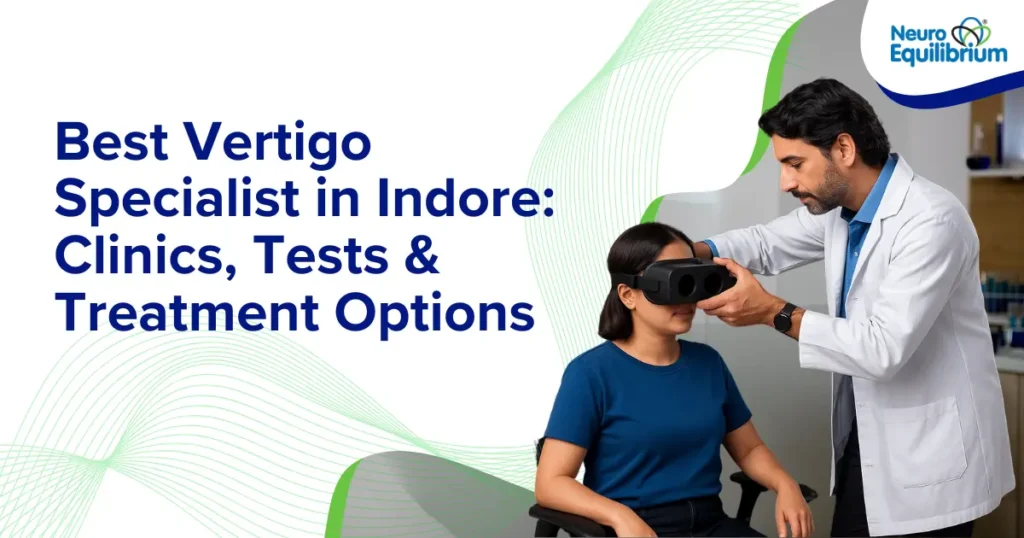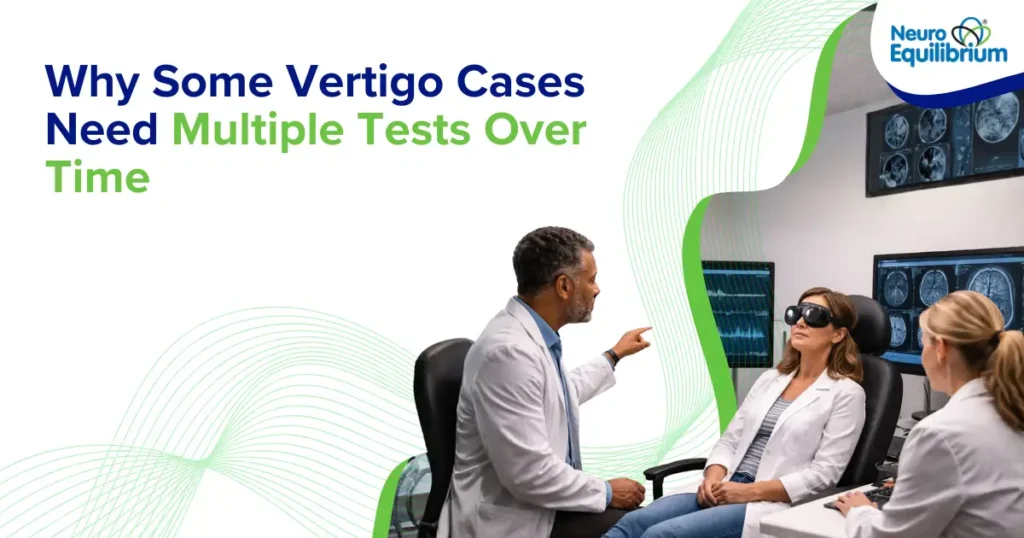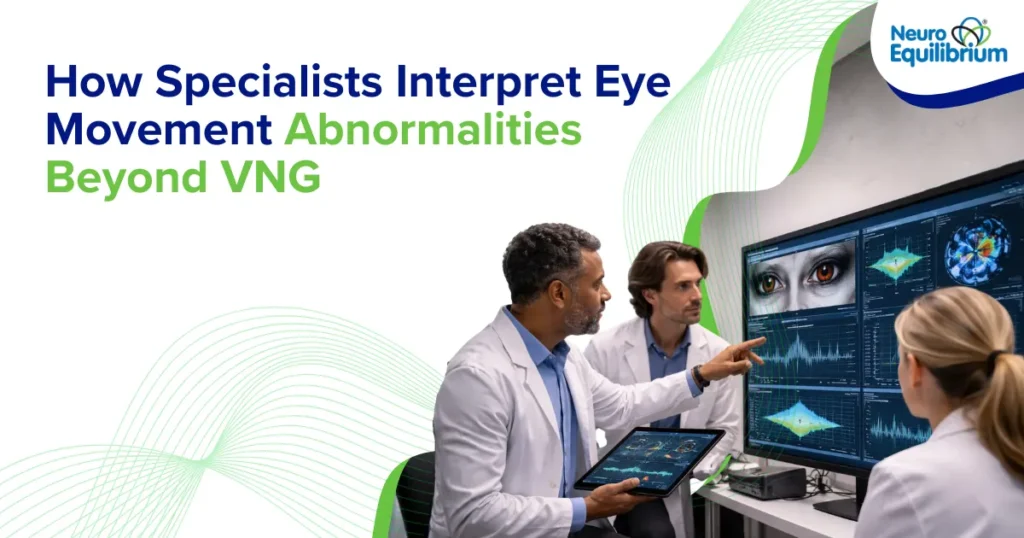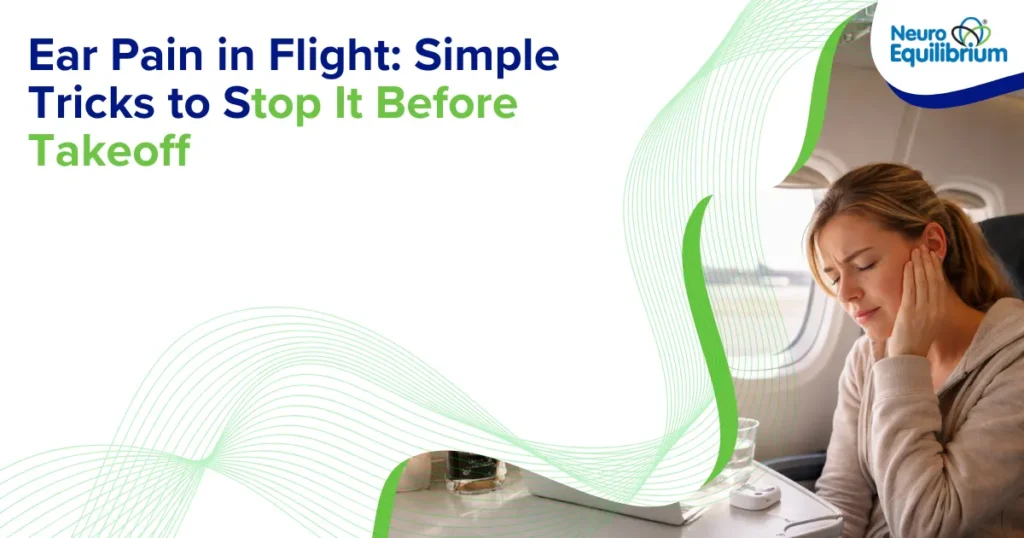What is Vertigo?
Ever felt like the world is spinning around you, even when you’re standing still? That dizzying feeling, often called ‘chakkar’, is known as vertigo. Imagine what top Australian cricketer Steve Smith went through when he had a “bad dose of vertigo” before a match!
Vertigo isn’t a disease; rather, it’s a symptom that acts a bit like a fever. It indicates that something is amiss, but it doesn’t specify what’s wrong. Usually, your body’s balance system, which involves your inner ear and communicates with your brain, works diligently to keep you steady. However, when this system experiences a little hiccup in your inner ear or brain, vertigo can occur. There are quite a few factors that could spark this sensation.
Given the multiple potential causes of vertigo, consulting a specialist is essential. They can carry out specific tests to identify the specific cause of your dizziness.
The positive aspect? Once the cause is identified, vertigo can be treated effectively! Avoid relying on medication to merely alleviate symptoms; addressing the underlying issue is key to recovery.
Know More About Best Vertigo Specialist
- Demystifying Vertigo And Dizziness
- How Technology Has Changed Vertigo And Dizziness Treatment
- How Vertigo Exercises Help Cure Vestibular Disorders?
Best Neuro Clinics for Vertigo Treatment in Indore
If you are experiencing vertigo or balance issues, it is strongly advised to consult a clinic that provides neurological care. Here are the top neuro clinics in Indore for diagnosing and treating vertigo:
1. NeuroEquilibrium Clinic – Ahilyapuri
Specialty: Neurologist, Vertigo & Balance Disorder Expert
Clinic Address & Contact Info:
📍 Ahilyapuri, Doordarshan Kendra, Residency Area, Indore
Pincode: 452001
Contact: +91 9266125888
Book Clinic Visit
2. NeuroEquilibrium Clinic – Teen Imli Chauraha
Specialty: Neurologist, Vertigo & Balance Disorder Expert
Clinic Address & Contact Info:
📍 Near Teen Imli Chauraha, Sector 1, Indore
Pincode: 452001
Contact: +91 9266125888
Book Clinic Visit
Neuroequilibrium’s Key Differentiator:
The clinic distinguishes itself through the use of modern diagnostic equipment and specialized balance labs for exact testing of vertigo and balance problems. By using the most up-to-date technology, particularly advanced vestibular testing and balance assessments, the clinic guarantees accurate diagnosis. What makes NeuroEquilibrium unique is its dedication to diagnose the specific disease condition as well as to provide specific and personalised care as in repositioning maneuvers or vestibular rehabilitation programs that support patients in gaining stability and greatly improving their quality of life.
Diagnostic Tests for Vertigo in Indore
If you have vertigo your doctor will probably advise a series of tests to determine what is causing your dizziness. These are some of the common diagnostic tests and what to expect;
1. VNG (Videonystagmography)
What it does: VNG is a key diagnostic tool that tracks your eye movements while you respond to visual cues and changes in body position. It helps determine whether your vertigo is linked to inner ear issues or the brain. As part of it, different positional tests, such as the Dix-Hallpike, Supine Roll Test, and Deep Head Hanging Test are used to evaluate how your balance system responds when you move into different head and body positions. These tests help diagnose Benign Paroxysmal Positional Vertigo (BPPV), one of the most common causes of dizziness, by targeting all three semicircular canals of the inner ear.
Is it painful?: No, it’s a painless procedure. Some dizziness during or after the test is normal and expected.
Time taken: Around 30–45 minutes.
NeuroEquilibrium Clinic: Offers VNG testing with integrated positional assessments using advanced equipment, ensuring precise diagnosis and tailored treatment for each patient.
NeuroEquilibrium Clinic: Offers the VNG test with advanced equipment to get precise results and guide your treatment.
2. SVV (Subjective Visual Vertical)
What it does: This test evaluates how accurately you can perceive vertical orientation. It helps detect dysfunction in the inner ear and vestibular system, particularly in conditions like vestibular neuritis or central vertigo.
Is it painful? No, it’s a non-invasive and comfortable test.
Time taken: About 10 minutes.
NeuroEquilibrium Clinic: Uses advanced digital SVV tests to detect even subtle balance system abnormalities.
3. DVA (Dynamic Visual Acuity)
What it does: This test assesses how well you can see clearly while your head is moving. It helps identify issues in the vestibulo-ocular reflex (VOR), which is crucial for stabilizing vision during movement.
Is it painful? No, it’s completely painless.
Time taken: About 10–15 minutes.
NeuroEquilibrium Clinic: Provides computerized DVA testing to help diagnose vestibular problems affecting visual stability.
4. Audiometry (for Inner Ear-Related Causes)
What it does: This test checks your hearing, that if you have any hearing loss along with vertigo.
Is it painful? No, it’s completely painless. You’ll wear headphones and listen to different sounds.
Time taken: About 15–20 minutes.
NeuroEquilibrium Clinic: Offers detailed audiometry tests to rule out hearing issues and focus on the best treatment for balance disorders.
Additional Tests: MRI or CT Scan
If a neurological condition is suspected—such as a brain tumor, stroke, or nerve-related issue—your doctor might recommend a MRI or CT scan.
What it does: These imaging tests provide detailed pictures of your brain and inner ear structures to rule out serious causes of vertigo.
Is it painful? No, the procedure is painless. You’ll need to lie still while the scan is being done.
Time taken: Around 30 minutes.
Treatment Options for Vertigo
If you have vertigo, there are several options for treatment to make you stable and less dizzy.
- Repositioning Maneuvers: Moves displaced inner ear particles back to position, typically in 10–15 minutes.
- Vestibular Rehabilitation Therapy (VRT): Uses exercises to help the brain adapt and improve balance.
- Medications: Prescribed by the doctors mostly to manage the symptoms if required.
- Lifestyle Modifications: Helps manage the symptoms and reduce triggers.
- Counseling and Psychological Support: Helps manage anxiety that may worsen dizziness.
- Personalized Treatment Plans: Tailored to your condition and explained by professionals.
NeuroEquilibrium Clinic in Indore offers you personalized care which includes advanced diagnostic tools & therapies like Repositioning maneuver, VRT along with professional advice on how one can change their lifestyle to help manage vertigo.
When to See a Vertigo Specialist
A vertigo specialist should be consulted if these feelings of dizziness or instability are common for you. It indicates that a more serious problem is responsible and should be managed by a specialist. A sensation of the surrounding moving when you move your head can often be caused by an inner ear problem. Another reason to see a specialist is trouble with walking in a straight line or feeling your balance is off. You should also see a doctor if you hear constant ringing (tinnitus) or your hearing suddenly gets worse, because this might mean your inner ear or brain is affected and needs quick care.
If you notice any of the symptoms we’ve talked about, we encourage you to schedule an appointment with the NeuroEquilibrium Clinic in Indore.
FAQs
Is vertigo curable?
Vertigo is often something we can manage, and in many cases, it can even be cured based on what’s causing it. There are helpful physical maneuvers that can treat conditions like BPPV.
Book a consultation at your nearest NeuroEquilibrium Clinic today.
Is it possible to treat vertigo without medication?
Indeed, many vertigo cases, including BPPV and vestibular imbalance, can be treated with physiotherapy, balance exercises and repositioning maneuvers without medications.
Book a consultation at your nearest NeuroEquilibrium Clinic today.
Will I need surgery to cure Vertigo?
In most cases, vertigo does not require surgery. The condition is typically managed through non-surgical treatments such as vestibular rehabilitation exercises, medications to control symptoms like dizziness or nausea, and lifestyle changes to reduce triggers. Surgery is considered only in rare and severe cases where all other treatments have failed to provide relief.
Book a consultation at your nearest NeuroEquilibrium Clinic today.
















